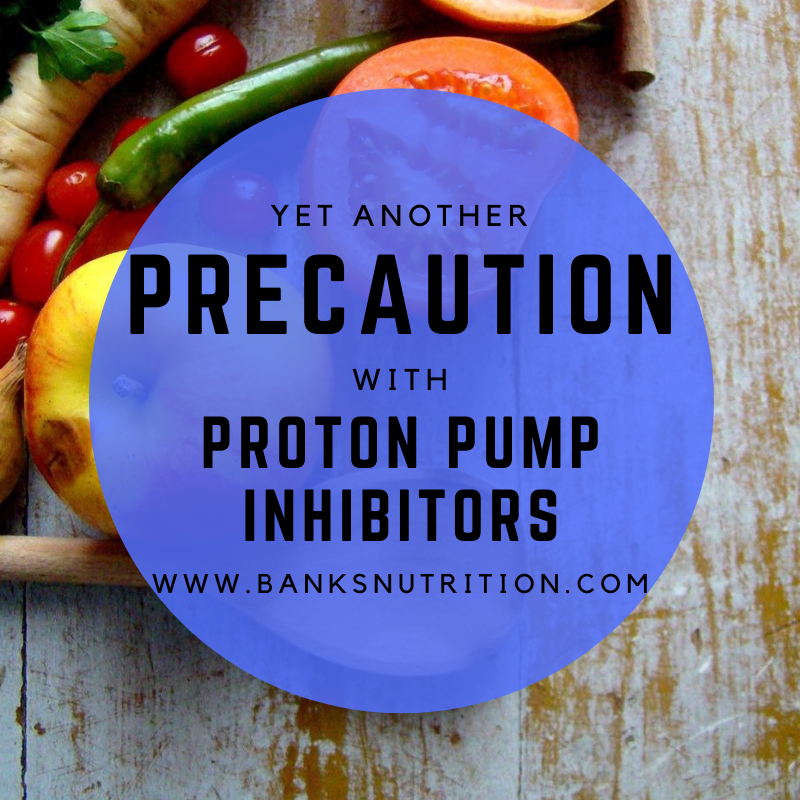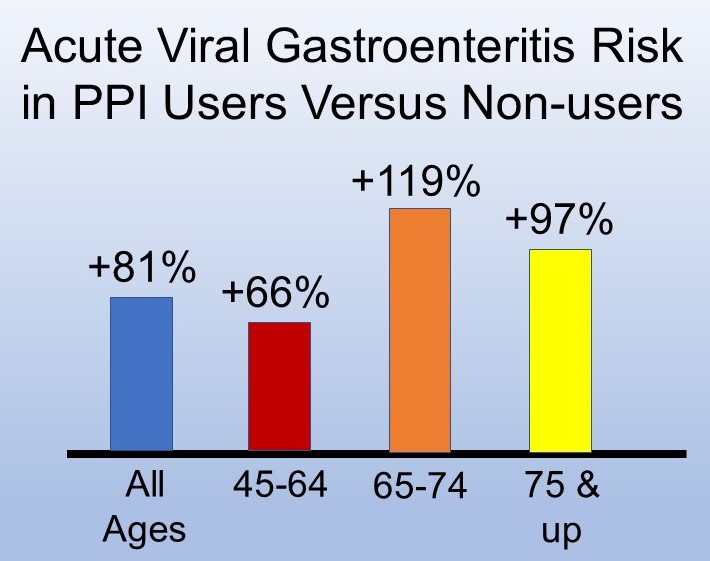
Yet Another Precaution with Proton Pump Inhibitors
December 4, 2019
Proton pump inhibitors are one of the most broadly used types of drugs with over 15 million adults using them by prescription and many more using OTC forms. As their use has become more long-term for many, several adverse effects have been associated including fractures, pneumonia, Clostridium difficile diarrhea, small intestinal bacterial overgrowth (SIBO), hypomagnesemia, vitamin B12 deficiency, chronic kidney disease, and dementia.
In addition to clostridia difficile intestinal infection several other infections of the GI tract have been associated with use. The connection seems to be that many of the infections that can involve the GI tract occur through the oral route. A natural protection against those infections is their elimination in the acidic environment of the stomach. When this protection is reduced by PPIs, more potential infectious organisms survive to populate the intestines.

A new study looked at the relationship between PPI use and one of the most common GI infections, acute viral gastroenteritis. Similar to studies of other infections PPI use was associated with an 81% increased risk of acute viral gastroenteritis. The risk was greatest in older users.
This has become a significant problem for two reasons. The first is simply the large numbers of adults who use PPIs. Much of that use is considered inappropriate. Different studies looking at the appropriateness of the use of PPIs have found between 25-70% of prescriptions are not indicated by best use guidelines. The second is that while these drugs are designed for short-term use (4-6 weeks) they are commonly used long-term. Estimates are that more than half of all users use these drugs long-term.
The answer lies in finding the trigger of symptoms such as indigestion, reflux, epigastric pain, abdominal pain and throat/sinus congestion. These problems are often caused by factors such as food sensitivity reactions, inadequate digestive enzyme production, poor intestinal motility and others. While PPIs can give temporary relief they are not fixing the underlying problem but rather masking it.
Gastric acidity serves many purposes including adequate protein digestion, cleansing harmful microorganisms from food, absorption of B12, magnesium and other nutrients. Covering up the above symptoms with PPI use interferes with all of these important processes. As the old margarine commercial used to say after the clap of thunder was heard, “it is not nice to fool Mother Nature”.
Vilcu et al. Association Between Acute Gastroenteritis and Continuous Use of Proton Pump Inhibitors During Winter Periods of Highest Circulation of Enteric Viruses. JAMA Network Open. 2019;2(11):e1916205.